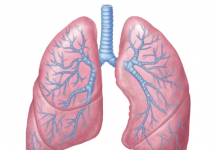Graves’ disease, the most common form of hypothyroidism, mainly occurs when your body’s immune system erroneously attacks your thyroid gland and leads to over production of thyroxin hormone.
Once if the disorder is properly diagnosed, it becomes quite easy to treat the disease.
This abnormal immune response mainly affects the tissue present behind your eyes and also some other parts of your skin.
The higher levels of thyroxin hormone in Graves’ disease can significantly increase your body metabolism and makes your body a host for different health conditions.
In certain peculiar cases, Graves’ disease gradually decreases or it can completely disappear after several months. If the condition of Graves’ disease is left untreated, it becomes a great source for developing severe complications in your body and in certain rare cases, it can even cause death.
How does it affect on your pregnancy?
It is very important for a pregnant woman with this health condition to be euthyroid before planning to conceive.
In fact, you should plan for pregnancy only if your graves’ disease is considerably under control, as the rate of birth defects or miscarriages is highly significant in females who are left untreated with this kind of thyroid problem.
However, people with this kind of disorder often experience a transitory remission of their symptoms during their pregnancy period.
If you develop Graves’ disease during your pregnancy, then it is always advisable, to be examined personally with your personal physician or any experienced health care professional through out your pregnancy.
Does this disease transmit from mother to fetus?
In fact, Graves’ disease can be transmitted vertically from mother to her fetus. It has been estimated that, approximately 1% to 5% of newly born infants for the women with graves’ disease are affected with hyperthyroidism.
This is mainly due to IgG auto anti-bodies produced by a mother with thyroid condition, which can easily cross the placental barrier and mainly target the thyroid stimulating hormone, expressing thyrocytes of the newborn.
Hypothyroidism in fetus is mainly associated with poor growth of infant and high heart rate. Once if the child is born, their levels of maternal IgG antibodies gradually decrease and as a result the symptoms of thyroid condition can also come to an end.
So, especially pregnant females, it is very important for you to get regular thyroid check ups. Take appropriate measures to control your graves’ disease and give a healthy life to your new born offspring.













